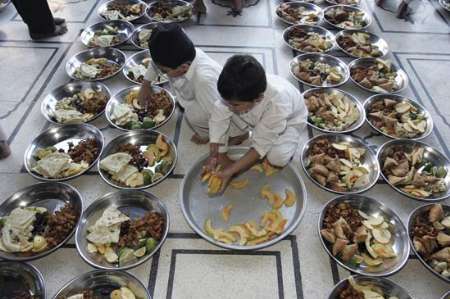
Pakistanis are preparing for the holy month while the temperature right now is above 40 degrees of centigrade in the capital Islamabad. People in many parts the country are experiencing even much hotter days and it is almost 50 degrees of centigrade in some areas.
The main problem is that all parts of the country facing long hours of power cuts throughout the year and the situation is even worse in the hot season. People have to suffer extreme heat while duration of fasting in Pakistan is more than 16 hours this Ramadan.
The situation of power cuts is even worse in rural areas where people are facing 20 hours of load shedding.
The government has announced that there will be no power cuts during “Sahar and Iftar” timings in Ramadan, but the people are not excepting much from the government as the power shortfall in the country is more than 6000 MW.
The security of religious gatherings and markets in the country is also a matter of concern for the people in Pakistan. Strict measures have been taken to ensure security during the holy month.
In Pakistan, Ramadan is celebrated with numerous prayers and rituals. Men especially in the late evening visit mosques and perform Taraveeh (prayers during Ramadan), while women pray the same at home.
Iftar timing in Pakistan is very unique among Muslim countries. Every day during Ramadan, in streets of Islamabad and all other cities, special food and sweets are offered to people and many people prefer to break their fast out of house.
Shia Muslims in Pakistan also organize special ceremonies in mosques to pay respect to the month. They also observe martyrdom of Imam Ali (AS) in the holy month and mourn the tragic incident.
In last days of Ramadan many people in Pakistan sit for Itikaf (meditative seclusion) in mosques while other pray at home.
Another important feature of Ramadan in Pakistan is increase in charity. People help the poor in the holy month through different means so that they could observe the month with less financial problem.
In the last days of Ramadan people rush to markets for Eid preparations. After Iftar, markets get crowded with people, especially women and children, to buy clothes and accessories for Eid ul Fitr.
272**1723**1771
www.irna.ir
 solhkhabar | Peace International News Agency Peace International News Agency , Peace News , International Agency News of Peace
solhkhabar | Peace International News Agency Peace International News Agency , Peace News , International Agency News of Peace